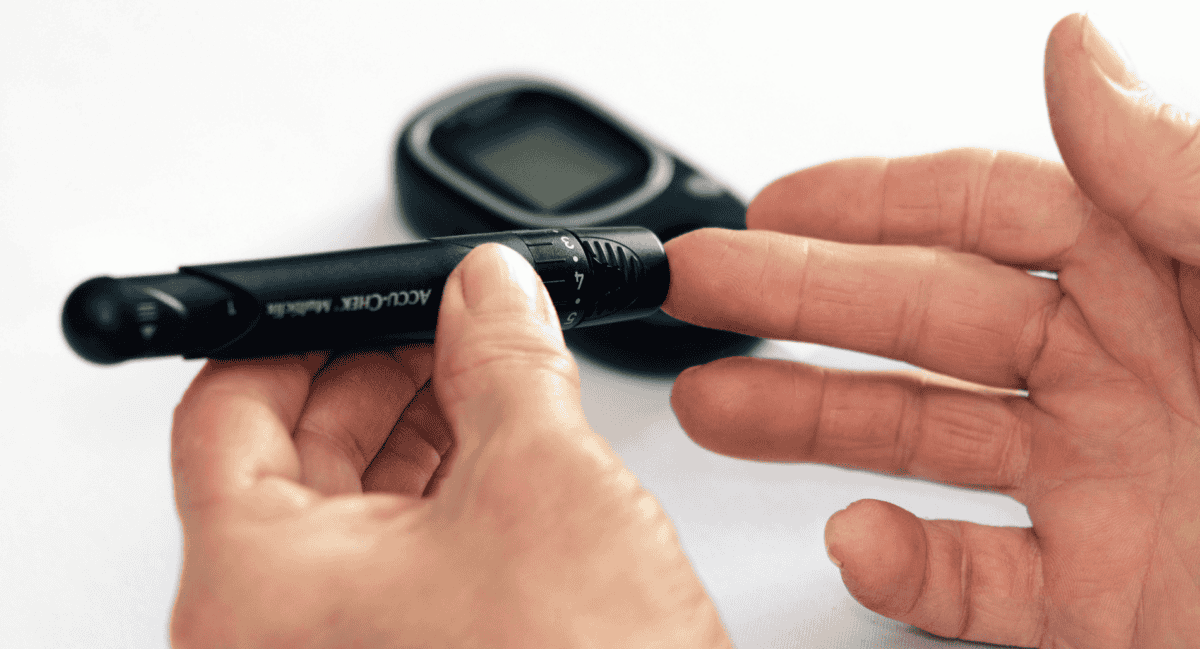Diabetes is a chronic condition that has far-reaching effects on various aspects of health and well-being. One lesser-known but significant impact of diabetes is its potential influence on hearing health. Let’s look at the connection between diabetes and hearing loss, discuss the mechanisms that link the two conditions, and provide practical tips for managing hearing health when living with diabetes.
Understanding the Link Between Diabetes and Hearing Loss
Research has shown that individuals with diabetes are more likely to experience hearing loss compared to those without diabetes. There are several potential mechanisms at play.
- One primary factor is the impact of high blood glucose levels on the blood vessels in the inner ear. Prolonged exposure to elevated blood sugar can damage the tiny blood vessels that supply oxygen and nutrients to the delicate structures of the inner ear, leading to impaired auditory function and eventual hearing loss.
- Diabetes-related nerve damage, known as neuropathy, can also affect the auditory nerves responsible for transmitting sound signals from the ear to the brain. Damage to these nerves can result in communication breakdowns and reduced auditory processing, contributing to hearing difficulties.
- Diabetes-related inflammation and oxidative stress have also been implicated in the development of hearing loss.
Signs and Symptoms of Hearing Loss in Individuals with Diabetes
Given the subtle and gradual nature of hearing loss, individuals with diabetes may not always be aware of the changes in their auditory function. It is important to recognize the signs and symptoms of hearing loss, including:
- Difficulty hearing high-pitched sounds or speech in noisy environments
- Tinnitus (ringing or buzzing in the ears)
- Increased volume levels on electronic devices
- Asking others to repeat themselves frequently
- Feeling fatigued or stressed from straining to hear conversations
If you experience any of these symptoms, book a hearing test with a hearing healthcare professional to assess your hearing health and determine the appropriate course of action.
Strategies for Managing Hearing Health with Diabetes
Living with diabetes presents unique challenges, but there are proactive steps individuals can take to protect their hearing health and minimize the impact of diabetes-related hearing loss. Here are some practical strategies for managing hearing health when living with diabetes:
Maintain Optimal Blood Sugar Levels
One of the most critical steps in managing hearing health with diabetes is to maintain optimal blood sugar levels through a well-balanced diet, regular exercise, and adherence to prescribed medications. By controlling blood glucose levels, individuals can reduce the risk of damage to the inner ear structures and preserve auditory function.
Schedule Regular Hearing Screenings
Regular hearing screenings are the best way to monitor any changes in auditory function in individuals with diabetes. Consult with a hearing healthcare professional to schedule routine screenings and evaluations to assess your hearing health and address any concerns. Early detection of hearing loss can lead to timely interventions and better outcomes.
Follow a Healthy Lifestyle
Adopting a healthy lifestyle that includes regular exercise, a balanced diet, adequate hydration, and sufficient rest can benefit both diabetes management and hearing health. Physical activity promotes circulation and oxygenation, which are vital for maintaining healthy hearing function. A diet rich in antioxidants, vitamins, and minerals can support overall health and protect against oxidative stress-related damage to the auditory system.
Protect Your Ears from Excessive Noise
Exposure to loud noise can exacerbate hearing loss and potentially worsen diabetes-related auditory complications. Protect your ears from excessive noise levels by wearing ear protection, reducing exposure to loud environments, and practicing safe listening habits. Limiting exposure to damaging noise can help preserve your hearing health and reduce the risk of further damage.
Consult with Healthcare Professionals
Collaboration with healthcare professionals, including your primary care doctor and your hearing health professional, is the best way to manage both diabetes and hearing loss. Seek guidance from these professionals to create a comprehensive care plan that addresses your unique needs and promotes optimal health outcomes. Regular communication with your healthcare team can help coordinate care efforts and ensure that your diabetes and hearing health are well-managed.
Visit Us to Promote Hearing Health
Maintaining good hearing health is an important component of your overall well-being, especially if you have diabetes. Visit us for routine hearing testing and to find out more about your hearing health. Together we’ll make sure you can enjoy all the sounds around you.

